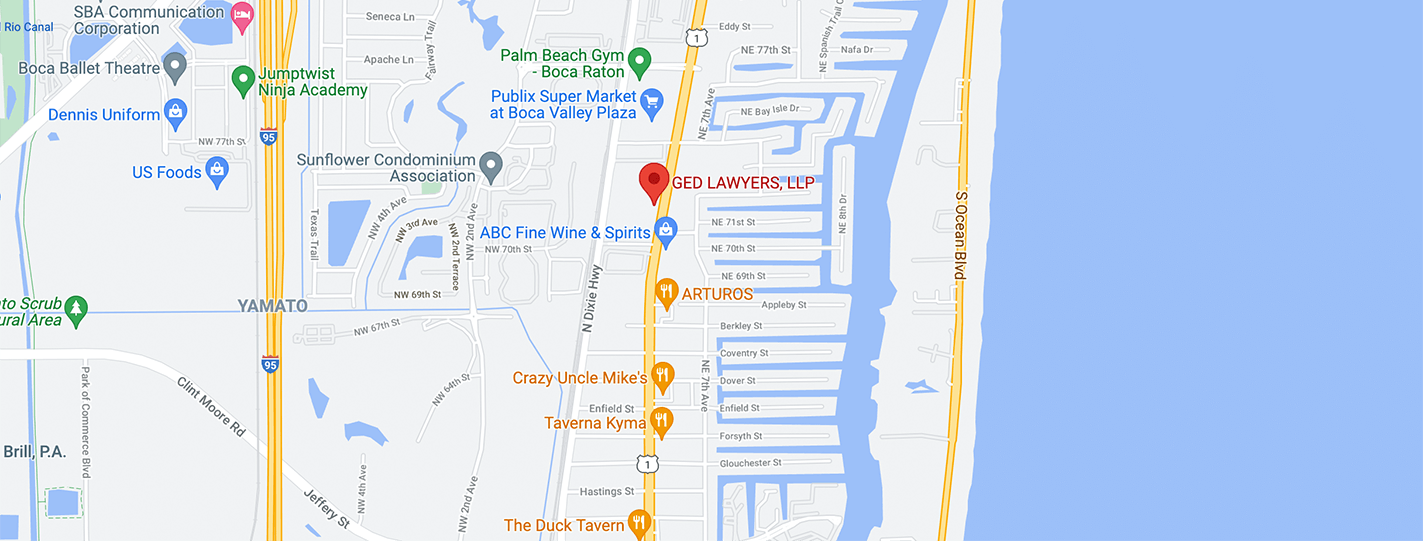
You are not required to have a lawyer when pursuing personal injury compensation. If you hire one, you can terminate your lawyer-client contract at any time. Before taking this significant step, you should understand the potential consequences of firing your personal injury attorney. In most cases, you can do so for any reason, though you may still owe them some compensation.
Even after letting your lawyer go, you do not have to handle your case alone. Just because you fire one attorney does not mean you cannot hire another one. Your fight for compensation can include legal support by choosing a new Boca Raton personal injury lawyer with whom you can form a mutually agreeable and respectable relationship—one who will accept your case at no upfront cost to you.
Reasons a Personal Injury Client Might Fire Their Lawyer
Firing a lawyer who has helped you file a personal injury claim is a serious decision and should be made for a valid reason. After an honest conversation and assessment of your circumstances, you should take the action that best fits your situation. Some reasons you might choose to fire your lawyer include:
- You believe your lawyer is not being honest with you
- You have a lack of confidence in their legal counsel and support
- You have significantly divergent communication styles
- Your lawyer changed their fee structure or contingency fee percentage
- Lack of attention to detail or lack of progress on your case
- Important details or deadlines have been missed
- Disrespect or disregarding of your preferences
- There was a violation of the attorney-client privilege
Consider your options carefully before firing your existing lawyer—a step you may not be able to undo. Before moving forward with your decision, consider attempting to reach a working agreement with your current lawyer.
Request an Itemized List of Any Fees That Are Due and Owing to the Attorney
Most personal injury lawyers work on a contingency fee basis—their fee is a percentage of your recovered damages. If you fire them before you recover damages, that may not mean they get nothing.
If the lawyer did any work at all on your case, they could be entitled to some form of payment. You are entitled to full disclosure of any fees or expenses that are requested of you. Failure to pay them for the legal services they provided could result in them retaining your case file or suing you in court for their fees.
Your attorney could place a lien on your upcoming settlement, but it cannot exceed the value of the work they completed. This means you may owe less in the early stages of your claim than in later stages.
we are here for our clients and their legal needs, with proficiency in a broad range of fields. GET A FREE CONSULTATION
Choose a New Potential Attorney to Represent You Carefully
In your pursuit of damages, your new attorney will work to move your case forward and to reach an acceptable financial resolution. They will bring familiarity with personal injury law to your case, and can also provide:
- A fresh perspective on your investigation
- A renewed look at your recoverable damages
- A communication style and frequency that meets your needs
If your lawsuit has not yet been filed (this is not the same action as filing your insurance claim), your new attorney can ensure compliance with Florida Statutes § 95.11. This statute defines how much time you have to file your lawsuit before losing the legal right to do so.
Carefully Examine Your Contract and Fee Agreement with the Law Firm
Your contract may contain a clause or plan of action for terminating the contract before your case is resolved. Either party might have this option, according to the contract, and it will likely:
- List reasons doing so is acceptable
- Provide a step-by-step guide for doing so
- Describe any costs you may have to pay
Following the process outlined in your contract might be the simplest way to end your relationship in a mutually agreeable manner.
Take These Important Steps When Firing Your Personal Injury Lawyer
Unless you plan to represent yourself in your injury claim, you may want to consult with an attorney at a new personal injury law firm as soon as possible. In some cases, you might take this important step before firing your old attorney.
To formalize your contractual relationship, your new attorney may:
- Ask you to sign a legal representation agreement after explaining their fee structure
- Request a “Consent to Change Attorneys” form and file it with the appropriate court
- Communicate with your previous attorney and law firm on your behalf
Your new attorney might be able to help you end your professional relationship with the previous one. They will also clarify any time-lapse your case may experience as it changes hands and how your potential compensation will be affected.
Your New Lawyer Will Clarify How Personal Injury Compensation Can Be Split
The lawyers can work out how they will divide the contingency fee once your case is resolved. They will understand how Florida law affects this matter and how the work of each attorney is assessed and given a financial value.
They may also help you negotiate a fair fee or percentage for the attorney you are dismissing. If things ended contentiously between you and your first attorney having someone else speak for you can be particularly beneficial. They can provide an objective perspective and relieve you of the associated stress.
with compassionate advice and professional assistance. CALL US TODAY
What to Expect When Changing Personal Injury Attorneys and How We Can Help
If you have an ongoing personal injury case and want to change attorneys, we can help you understand what happens if you fire your personal injury attorney. We also clarify all the ways your claim will be affected and everything we can do to help you, and your case stay focused and on track.
Find out how hard our law firm will work to resolve your personal injury claim. Contact our consultation team at Ged Lawyers to get started today.
